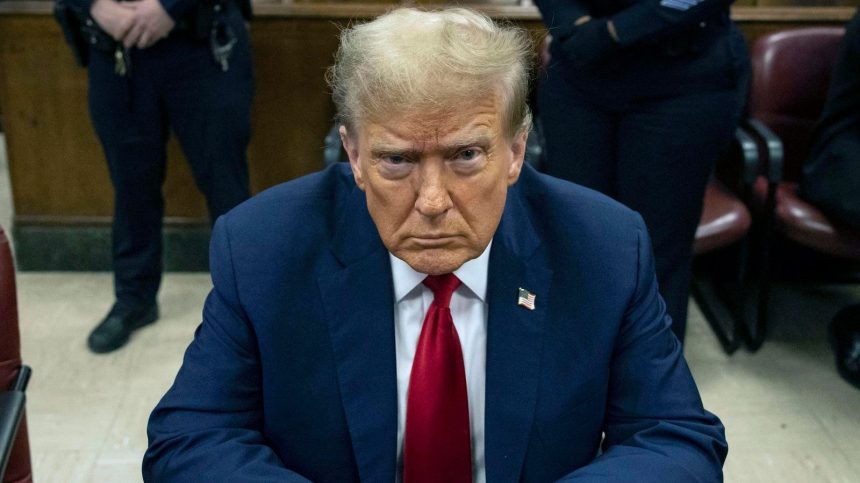Former President Donald Trump’s conviction on 34 felony counts of falsifying business records continues to generate controversy and legal maneuvering. The charges stem from hush-money payments made to adult film star Stormy Daniels during the 2016 presidential campaign, which Trump subsequently reimbursed to his former attorney, Michael Cohen. These reimbursements were falsely categorized as legal expenses, leading to the charges against Trump. The former president vehemently denies any wrongdoing, characterizing the charges as politically motivated and part of a broader “witch hunt” orchestrated by his opponents. This narrative of persecution has become a recurring theme in Trump’s response to various legal challenges he faces.
The recent denial of Trump’s motion to dismiss the conviction by Judge Juan Merchan has further fueled the former president’s claims of unfair treatment. Trump has accused Merchan of bias and called for his disbarment, escalating his attacks on the judiciary. He contends that Merchan’s decisions are driven by political animus and represent a broader pattern of corruption within the New York justice system. This rhetoric echoes similar accusations Trump has leveled against other judges and prosecutors involved in his legal battles, including those related to the classified documents case and the civil trial concerning the valuation of his assets.
Trump’s sentencing, scheduled for January 10th, looms large. While Judge Merchan has indicated that prison time is unlikely, Trump could face substantial fines of up to $5,000 for each count, totaling $170,000. The timing of the sentencing, shortly after the November presidential election, adds another layer of political complexity to the proceedings. Trump’s continued insistence on his innocence and his intention to appeal the verdict signal a protracted legal battle that could extend well into his potential next term as president. This raises questions about the intersection of legal proceedings and presidential duties, as well as the potential impact on the political landscape.
The legal saga surrounding the hush-money payments highlights the ongoing tension between Trump and the judicial system. His repeated accusations of bias and corruption, coupled with his refusal to accept responsibility for his actions, underscore a fundamental clash of perspectives. Trump portrays himself as a victim of a politically motivated campaign to undermine his presidency and political aspirations. This narrative resonates with his supporters and fuels further polarization within the American political landscape. Conversely, critics view Trump’s attacks on the judiciary as an assault on the rule of law and an attempt to evade accountability.
The upcoming sentencing and subsequent appeals process promise further legal and political wrangling. The legal arguments will likely center on technical aspects of the case, including the interpretation of business record laws and the admissibility of evidence. However, the political implications of the case extend far beyond the courtroom. The charges against Trump are just one of several legal challenges he faces, each contributing to the ongoing debate about his fitness for office and the integrity of the American political system.
The hush-money case serves as a microcosm of the larger narrative surrounding Donald Trump’s presidency and post-presidency life. It exemplifies his confrontational style, his willingness to challenge established norms, and his persistent claims of victimhood. The case also illustrates the deep divisions within American society and the ongoing struggle to reconcile competing visions of justice, accountability, and the role of the presidency. As the legal process unfolds, it will continue to captivate public attention and shape the political landscape for years to come. The outcome of the appeals and the broader impact on Trump’s political future remain uncertain, adding to the drama and intrigue surrounding this complex legal and political saga.



